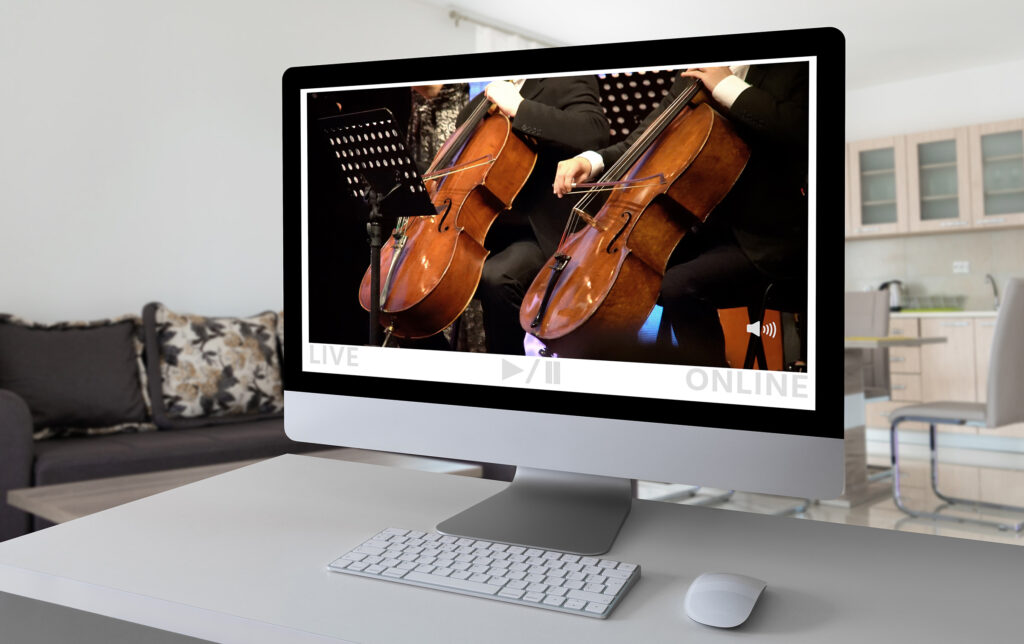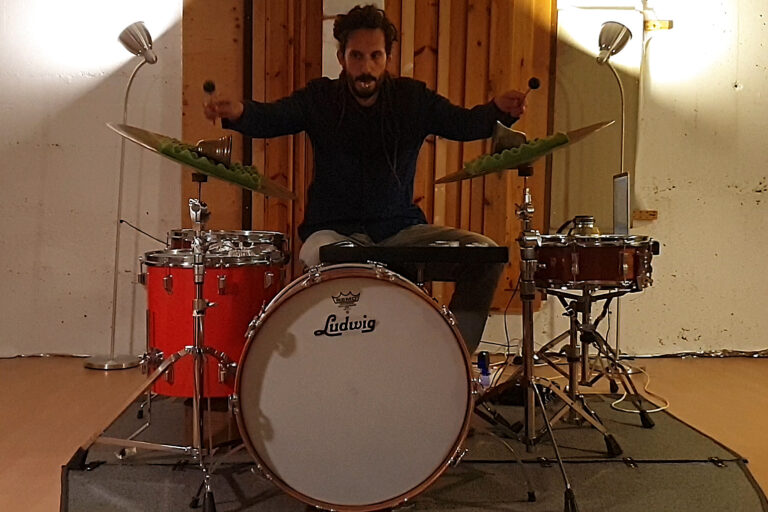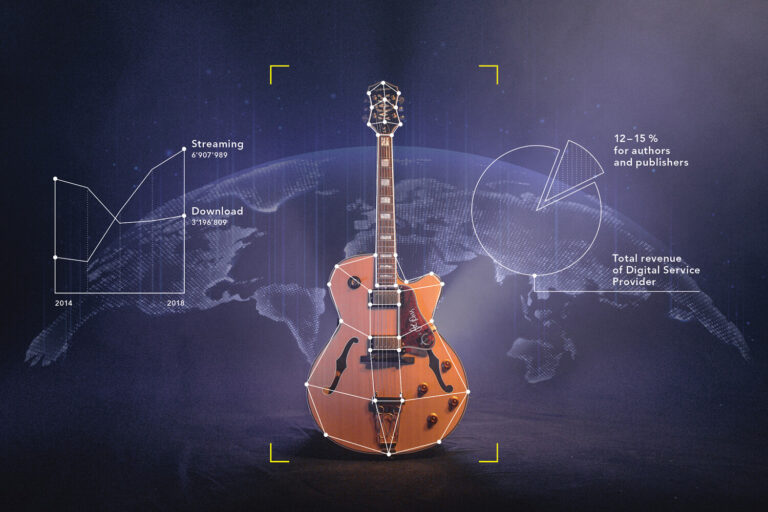During the pandemic, dance and fitness courses, religious services, general meetings, and ever more concerts were recorded on the internet and aired as livestreams in replacement of disallowed live events. In October 2020, a virtual concert of the South Korean boy-group BTS attracted over 900,000 fans worldwide and brought in revenues of USD 44m.
These online events regularly fuel debate in the media, as well as between music creators and, naturally, the organisers of livestreaming events. More often than not, discussions revolve around the licensing terms and conditions for the necessary livestreaming rights.
What is a livestream?
A livestream is an event that is aired individually and in real time over the internet. The audience can log in at the start of the event and follow the event live – for free or for a fee. Livestreams should be distinguished from on-demand offers where spectators can choose to view the content at the time of their choice. Moreover, a livestream is not a broadcast, where contents are also transmitted in real time, but as programmes in a succession of broadcasts and not as individual events. A livestreaming licence is required for any individual event that is simultaneously recorded and streamed over the internet where the audience cannot freely choose when to view it.
Livestream licensing conditions are based on performance tariffs
Since streamed events are generally events that could just as well be staged live in the presence of an audience or performed by way of replacement for such events, the licensing terms are based on the terms and conditions of the relevant performance tariffs. Accordingly, the same percentage rate will apply to a streamed concert as that applied to a concert performed with a physical audience under Common Tariff K (CT K). Proceeding by analogy with the performance tariffs ensures that organisers of virtual and physical concerts are treated on an equal footing since their events tend to be reciprocal substitutes.
Licensing conditions distinguish between different categories: concerts, DJ sets, shows and ballet performances, and theatrical plays. The relevant rate is applied to revenues or costs as provided in the performance tariffs (CT K and CT Hb). Also in accordance with the latter, rates are adjusted proportionately with the duration of the protected music used (pro rata temporis rule). In addition to these categories, other classes of events, such as sports events, evening entertainment, seminars, religious services, events in homes and hospitals, etc. are grouped under “other events” – in this case, a flat rate of 2% of gross revenues or costs is applied.
If revenues are less than the gross cost, or if there are no revenues, the above rates are applied to total costs. As in the case of the performance tariffs, music-related gross costs are deducted. These costs consist of the following: musicians’ fees and expenses, rental of sound and recording equipment (microphones, mixing console, camera, etc.), instrument rental, and rent for the location.
Events with an audience that are additionally streamed
Live events are often staged with a small physical audience and simultaneously aired over the internet to extend their reach. In such cases, the organiser will need a “normal” licence for the performance rights and an additional licence for the livestream. As a rule, this means that, in addition to the fees charged under the performance tariff, the minimum fee CHF 40 will be charged for the livestream, since the revenues or costs of the event are already taken into account in the performance licensing fee. However, if the livestream generates separate revenues, the licence fees for the livestream will be charged on that basis.
Viewing streams after the live event
Many livestream organisers leave recordings of the stream on the internet for a certain period time after the live event; these recordings can be subsequently called up and viewed by people who missed the livestream at the official time. Provided the livestream was properly declared and licensed, SUISA allows it to be stored for subsequent viewing for a flat fee of CHF 100 in the case of concerts and DJ sets – for all other types of events the flat fee is CHF 50.
What rights are covered by the licence?
For organisers established in Switzerland or Liechtenstein whose streams are primarily intended for a domestic (Switzerland and Liechtenstein) audience, SUISA can licence the rights for the world repertoire. In the case of international organisers whose streams are intended for audiences including Switzerland and Liechtenstein, SUISA can licence the world repertoire for uses in our territory; in this case, the licence fees will be calculated only on the basis of the sales realised in Switzerland and Liechtenstein.
In the livestream area, SUISA only manages authors’ musical copyrights. For all other rights, e.g. neighbouring rights or synchronisation rights, users should contact the relevant rightholders.
| Livestreams with music must be registered with SUISA Please refer to our website for the licensing terms and conditions, application form, and further information about livestreams: To complete your application, the following information is required:
A licence is also required for livestreams produced via an external platform and embedded on your own website (e.g. Facebook Live, Instagram Live, Youtube Live or Twitch). The rules governing current temporary exceptions in the livestream area proceeding from federal measures to combat the corona pandemic are also published on our website: |




